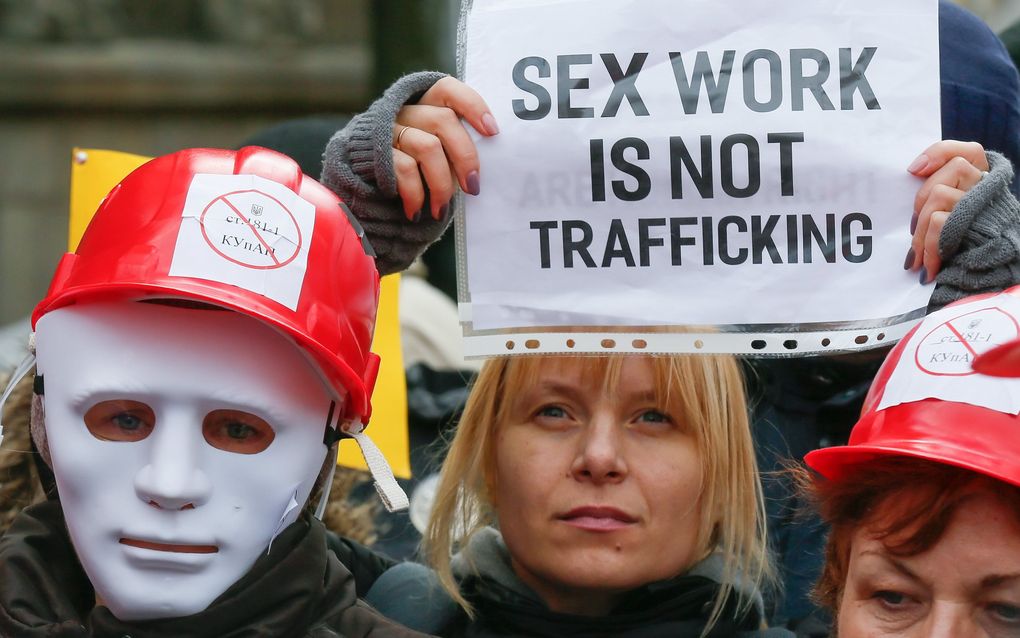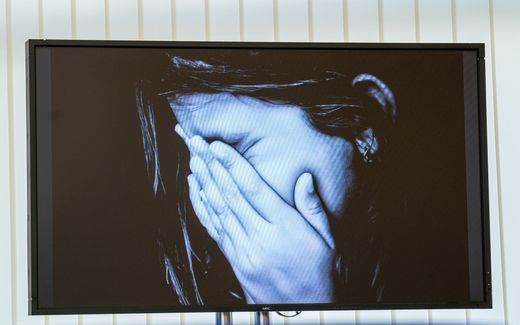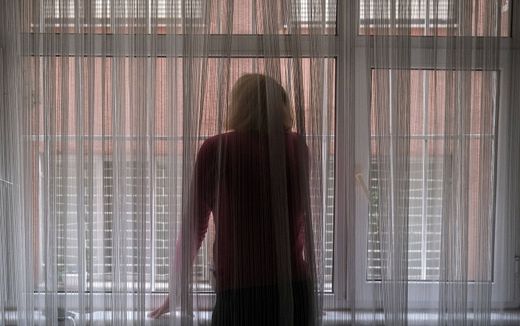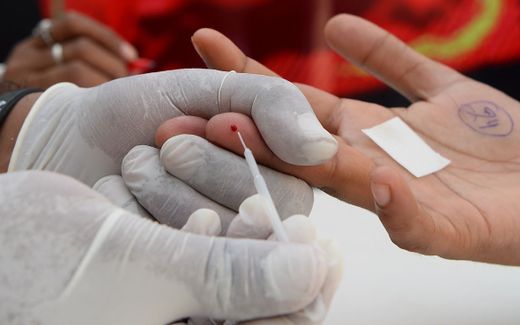Five reasons against legalising prostitution

Activists participate in a protest rally to demand legalisation of prostitution. Protesters held banners with text "Sex work is work!", "My work is my choice!", "Work is not criminal! "Legalisation – yes, criminalization – not!". Photo EPA, Sergey Dolzhenko
European Union
Believe it or not, but the number of young people that earns money with sex is growing. There is also a lot of public money that goes to the lobby to decriminalise prostitution. In Europe, there is an invisible, but consistent push to normalise prostitution. Yet, it is a bad idea to liberalise sex work. Five reasons why.
Stay up to date with Christian news in Europe? Sign up for CNE's newsletter.
“Sex work is work” and “Women should be able to do with their body what they want”. These slogans are often heard at demonstrations for the legalisation of prostitution.
Recently, however, the European Centre for Law and Justice (ECLJ) reported that the pro-prostitution lobby is much stronger and better organised than many may know.
And that is dangerous, the Christian organisation argues. Five reasons why prostitution should not be liberalised and legalised.
1. Decriminalising prostitution is contrary to international law
The United Nations Convention for the Suppression of the Traffic in Persons and of the Exploitation of the Prostitution of Others explicitly states that “prostitution and the accompanying evil of the traffic of persons for the purpose of prostitution are incompatible with the dignity and worth of the human person and endanger the welfare of the individual, the family and the community”. Also the Palermo Protocol (2000) and the Warsaw Convention on Action against Trafficking in Human Beings (2005) expressly forbid the decriminalisation of prostitution.
These pacts are signed by dozens of countries that thereby commit themselves to the provisions that read that pimping is to be condemned and “demand must be discouraged, including through the adoption of a legal framework, penalising the clients of prostitution”, the ECLJ report says. In other words, the organisation pleads for the introduction of the Nordic Model, which criminalises sex buyers, but not the prostitutes themselves.
It is “absurd to ask legislators to ensure that sex workers may carry out their activity in dignified conditions”, the report reads. “Prostitution in itself is a form of violence and is contrary to human dignity.”
2. Decriminalising prostitution is dangerous for young people
Legalising prostitution sends the wrong signal, especially to young people, the ECLJ warns. Children and adolescents are no longer shocked by prostitution. And watching porn is something that happens very regularly among minors.
This hypersexualised context is dangerous for youngsters, UN rapporteur Reem Alsalem warned earlier in a report. The massive exposure to porn, which is filmed prostitution, according to Alsalem, makes girls more vulnerable to ending up in prostitution. It is, in fact, normalising sex as a consumption good.
Besides, the widespread use of pornography fuels the demand for prostitution and leads to more trafficking, Alsalem shows in her report. “More frequent users of pornography, were also the most frequent users of women in prostitution”, she writes in her report.
In addition, legalising prostitution has a normalising effect in society. This is seen, for example, among students. The French University of Grenoble-Alpes discovered that the number of students prostituting themselves for money has gradually grown. Some say that this is due to the idea among young people that “sex work is a job like any other.”
3. Prostitution is almost always forced
It is actually only a minority of prostitutes who argue that sex work is a choice. Studies show that a large majority of women are forced to work in the industry. An EU resolution from 2023 even speaks about 70 per cent of the 30,000 prostitutes in the Netherlands, who are coerced into selling their bodies, either by other people or by financial circumstances.
In addition, prostitution is where most human trafficking takes place. More than half of the trafficking victims in the European Union end up in sexual exploitation. And most of the money that is made off human exploitation is paid by men who buy sex from trafficked women.
So, what does that mean for the liberalisation of prostitution? If people are unable to consent to what happens to their body, their human dignity is severely violated, says special rapporteur Reem Alsalem. And, she argues, society has the duty to protect that dignity. In other words, legalising prostitution should be out of the question.
4. Criminalising sex buyers has positive effects on society
Whereas decriminalisation of prostitution has several negative effects, criminalising sex buyers has a positive impact on society, the ECLJ concludes in its report. For example, the demand for prostitutes in Sweden fell from 13.6 per cent to 7.9 per cent between 1995 and 2008. In that period, the country introduced the Nordic Model, which criminalises men who buy sex, but not the women who sell it.
Another positive effect from implementing the Nordic Model is the reduction of violence and human trafficking. In countries that abolished prostitution, fewer prostitute murders take place.
5. Legalising prostitution does not help sex workers
In addition, countries where prostitution is legalised have a higher number of victims of human trafficking. According to Europol, perpetrators can hide behind legal structures, the ECLJ writes in its report. Furthermore, legalisation of prostitution does not stop illegal practices from happening.
In Germany, where prostitutes can register with the authorities, only 11 per cent (28,280 out of about 250,000) of them do. That means that a majority continues to operate from the shadows where illegal practices blossom.
Moreover, it is harder for law enforcement to act against perpetrators, because officers have to distinguish between legal and illegal forms of prostitution.
Stigma
In short, it is worrying that the pro-prostitution lobby is growing in European institutes. Especially the Open Society Foundation (OSF) is hard at work to legalise prostitution, the ECLJ warns.
OSF has been active as a lobbyist for years, the ECLJ report says. It aims for the “recognition of sex work as work” and propagates that the criminalisation of prostitution leads to a stigma of sex workers.
OSF also financially supports organisations that have the same goal. Examples include the Red Umbrella Fund, the European Sex Workers Rights Alliance and the Global Network of Sex Work Projects.
By working together, the pro prostitution lobby has become a strong force. Researcher Jody Raphael showed in 2018 already that this can be a huge problem. She warns that these actors produce reports that can be quoted by each other. These reports, however, “ignore a large body of reputable research and create an alternative reality about the sex trade industry that ignores known facts.”
Related Articles












